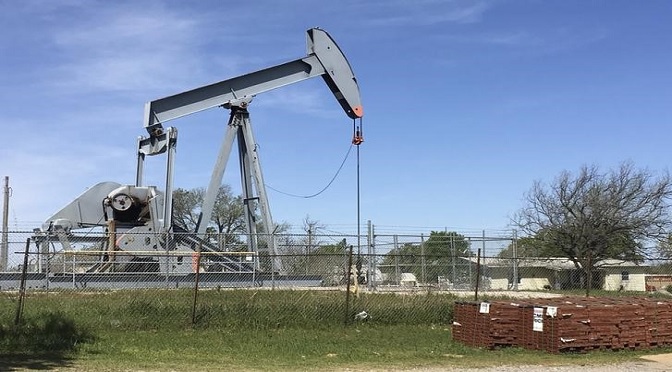-
Authoradmin
-
Comments0 Comments
-
Category
By Noah Browning
LONDON (Reuters) – Oil prices gained about 1 percent on Tuesday, supported by OPEC-led production cuts and U.S. sanctions against Iran and Venezuela, though remain wary of surging U.S. output and the outcome of U.S.-China trade talks.
Brent crude futures were up 61 cents at $62.12 a barrel and U.S. West Texas Intermediate (WTI) crude oil futures rose 54 cents to $52.95 a barrel by 0950 GMT.
The continuing closure of parts of the Keystone pipeline that brings Canadian oil into the United States also helped to prop up WTI, traders said, after a partial shutdown at a Phillips 66 (NYSE:PSX) crude distillation unit led to initial sell-offs on Monday.
Analysts said markets are tightening because of voluntary production cuts led by the Organization of the Petroleum Exporting Countries (OPEC) and allies including Russia, as well as U.S. sanctions on OPEC members Venezuela and Iran.
Saudi Arabia, the world’s top exporter and de facto leader of OPEC, said on Tuesday that it would reduce oil production to nearly 9.8 million barrels per day (bpd) in March, about half a million bpd more than it originally pledged.
Also at the radar are hopes expressed by U.S. and Chinese officials that a new round of talks, which began in Beijing on Monday, would bring them closer to easing their months-long trade war.
Beijing and Washington are trying to hammer out a deal before a March 1 deadline, without which U.S. tariffs on $200 billion worth of Chinese imports are scheduled to increase to 25 percent from 10 percent.
However, climbing U.S. oil production, fighting near Libya’s main oilfield, sanctions on Venezuela and suspense over whether the U.S. will to grant more waivers to import Iranian oil leave markets unsure about the broader supply picture.
“We believe that oil is not pricing in supply-side risks lately as markets are currently focused on U.S.-China trade talks”, JP Morgan said in a weekly note.
Should U.S.-China talks succeed, the U.S. bank said that oil markets would “switch attention from macro concerns impacting future demand growth to physical tightness and geopolitical risks impacting immediate supply”.
Any economic slowdown this year could cap oil markets.
Bank of America (NYSE:BAC) also warned of a “significant slowing” in global growth, adding that it expects Brent and WTI to average $70 and $59 a barrel respectively in 2019 and $65 and $60 in 2020.
(GRAPHIC: U.S. oil production & drilling levels – https://tmsnrt.rs/2Tm4u4I)
Recent Comments
- Starlight Herot on Euro Higher on German Data, Sterling Edges Lower
- Frost Dragont on Euro Higher on German Data, Sterling Edges Lower
- Gwinnettt on Euro Higher on German Data, Sterling Edges Lower
- Vanessat on Euro Higher on German Data, Sterling Edges Lower
- Christinet on Euro Higher on German Data, Sterling Edges Lower
Archives
- February 2025
- January 2025
- December 2024
- November 2024
- October 2024
- February 2024
- July 2023
- July 2021
- May 2021
- March 2021
- February 2021
- September 2020
- May 2020
- February 2020
- December 2019
- November 2019
- October 2019
- September 2019
- August 2019
- July 2019
- June 2019
- May 2019
- April 2019
- March 2019
- February 2019
- January 2019
- December 2018
- November 2018
- October 2018
- September 2018
- August 2018
- July 2018
- June 2018
- May 2018
- April 2018
- March 2018
- February 2018
- January 2018
- December 2017
- November 2017





